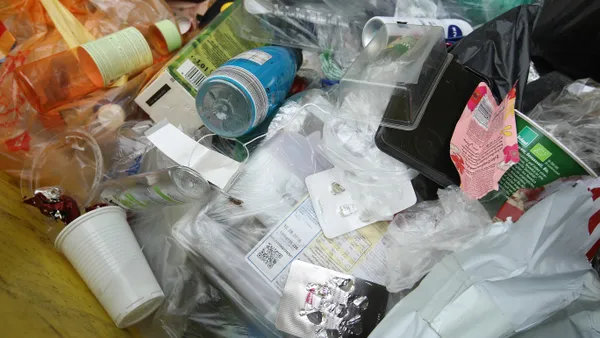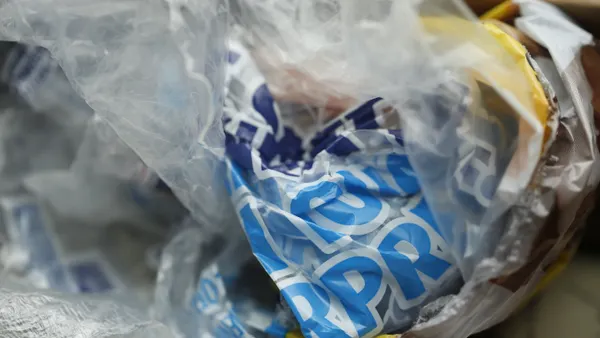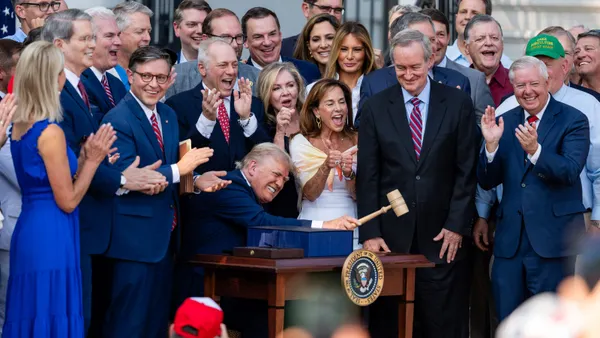Dive Brief:
- Following new Congressional attention, the EPA recently announced five efforts to address national recycling issues. The work is described as supporting potential initiatives under discussion by four outside working groups focused on education, infrastructure, market development and measurement.
- The EPA's efforts include exploring a "limited pilot" education campaign to decrease plastic film in curbside collection programs in favor of retail drop-off options. The agency may also host regional and state market development workshops "to help bridge connections with economic development organizations."
- Other planned agency projects include updating both its emissions calculation tool for recycled content assessments and recycling measurement guide. The EPA also plans to solicit comments via the Federal Register about current recycled content requirements for federal procurement.
Dive Insight:
Last fall, following a period of heightened national attention on recycling challenges, the EPA took a newly active role in the conversation by convening an America Recycles Day summit. The largest federally-backed event of its kind in years brought dozens of companies, organizations and government entities together in a choreographed roundtable and signing of a voluntary pledge to take further action.
While symbolically potent, the event raised complex questions about how so many disparate interests could enact meaningful changes. Consumer product companies, retailers, recycling service providers, local governments and others in between have often had conflicting priorities when it comes to making the system work.
Since then, the original list of 44 pledge signatories has nearly doubled, and working groups have been meeting to hash out potential solutions. Meetings have been closed to press, but reports indicate consensus on some of the biggest topics has often been difficult to achieve.
When Rep. Haley Stevens asked the agency about recycling efforts earlier this year, its offered few new details and indicated that more information would be available in November. The subsequent decision to release this July progress report, along with partial recycling rate data for 2016 and 2017, marks an incremental step toward more transparency.
According to the report, working groups are starting with simpler priorities before taking on thornier near- and long-term actions. For example, the education group is currently working to "develop consistent messages for key recycling issues" around recycled content and contamination. Common terminology, a national public relations campaign or possible legislation are all farther off.
Updates from the three other groups are largely similar. The infrastructure working group's priority action is to develop a "clearinghouse" of publicly available information on resources and funding. The measurement group is calling for a similar compilation, along with further research on existing standards. The market group has so far agreed to "explore opportunities to spur regional and local market development activities."
The EPA's own supplemental list (which includes some preexisting projects) is more tangible by comparison, though similarly uncontroversial. Given that this is a progress report, it's possible there could be further announcements about working group or agency actions in November.
In the meantime, many more transformative ideas around a national recycling strategy, extended producer responsibility policies, $250 million worth of "zero waste" grants and more will continue to be hashed out in Congress and public dialogue. Even if none of these proposals gain political traction, they may still raise expectations for any America Recycles Day 2019 announcements to go beyond the lighter plans this report suggests.










